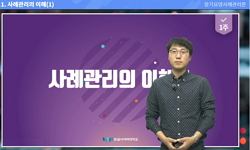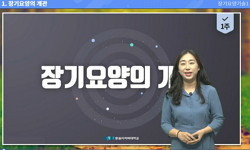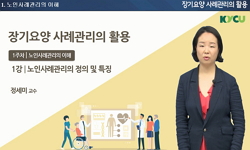연구목적 : 만성정신질환자의 집단정신치료는 약물치료를 유지하면서 동시에 증상을 조절하고, 정서적인 갈등을 해결하며, 부적응적인 대인관계 문제를 향상시켜주는데 효과적이면서 접...
http://chineseinput.net/에서 pinyin(병음)방식으로 중국어를 변환할 수 있습니다.
변환된 중국어를 복사하여 사용하시면 됩니다.
- 中文 을 입력하시려면 zhongwen을 입력하시고 space를누르시면됩니다.
- 北京 을 입력하시려면 beijing을 입력하시고 space를 누르시면 됩니다.

만성정신질환자를 위한 장기외래집단정신치료 치료요인 = Therapeutic Factors in the Long-Term Outpatient Group Psychotherapy with the Chronically Mentally Ill
한글로보기https://www.riss.kr/link?id=A3002142
- 저자
- 발행기관
- 학술지명
- 권호사항
-
발행연도
2000
-
작성언어
Korean
- 주제어
-
KDC
513.85
-
등재정보
KCI등재
-
자료형태
학술저널
- 발행기관 URL
-
수록면
556-570(15쪽)
- 제공처
- 소장기관
-
0
상세조회 -
0
다운로드
부가정보
국문 초록 (Abstract)
연구목적 :
만성정신질환자의 집단정신치료는 약물치료를 유지하면서 동시에 증상을 조절하고, 정서적인 갈등을 해결하며, 부적응적인 대인관계 문제를 향상시켜주는데 효과적이면서 접근이 용이한 치료방법이다. 이에 따라 저자들은 만성정신질환자에 효과적으로 적용될 수 있는 반개방형, 이질적인, 장기(시간무제한) 외래집단정신치료를 주 1회 실시하였다. 본 논문의 연구목적은 ① 만성정신질환자의 임상상황에 적용되는 집단정신치료의 치료원칙 및 운영방법을 간단히 소개하고, ② 참여자들이 도움 받은 것으로 보고한 치료요인을 집단발달단계에 따라 조사하고, 시행과정에 나타나는 특징을 분석하며, ③ 본 집단정신치료의 적절성과 타당성을 검증하여, 현재 한국 의료상황에 맞는 저비용, 고효율적인 모델로서 정착시켜 만성정신질환자의 장기외래치료를 보다 효과적으로 할 수 있는 기반을 마련하는데 있다.
대상 및 방법 :
본 연구는 1998년 1월부터 1996년 6월까지, 하남시 정신보건센터 주간보호에 출석하는 만성정신질환자들을 대상으로 하였다. 총 18개월 동안 참가자는 27명이었으나, 본 연구가 장기외래집단이기 때문에 최소한 참여기준기간을 6개월로 정하고, 최종적으로 6개월 미만 참여한 7명은 연구대상에서 제외시켜 총 20명(남자12명, 여자 8명)을 연구대상자로 선정하였다. 평가도구로는 대상자들에게 집단정신치료가 끝난 직후 13가지 치료요인척도를 작성하도록 하였고, 집단정신치료를 종결하는 환자나 본 연구를 종결짓는 시점에서 참여한 환자들을 대상으로 자기보고식 프로그램 총평가 설문지를 실시하였다.
결 과 :
13가지 치료요인척도의 순위는 형성기에 상위를 차지한 치료요인은 순서대로 실존적 인자, 치료자의 조언, 희망의 고취, 이타심, 카타르시스였고 갈등기에 상위를 차지한 치료요인은 순서대로 실존적 인자, 희망의 고취, 치료자의 조언, 카타르시스, 집단응집력이었다. 그리고 안정기에 상위를 차지한 치료요인은 순서대로 실존적 인자, 이타심, 일차가족집단의 교정적 반복발달, 대인관계학습, 카타르시스였다. 프로그램 총평가 설문 결과를 살펴보면, 집단정신치료에 대한 총평가에서 참여자의 90%가 도움을 받았다고 하였고, 80%가 집단정신치료를 다른 사람에게 적극적으로 권유하겠다고 하였으며, 75%가 재참여 의사를 보고하였다. 그리고 집단정신치료의 구성과 치료자에 관한 태도에서 매우 긍정적인 평가가 나왔다.
결 론 ;
장기외래집단정신치료는 저비용, 고효율적인 치료방법으로 만성정신질환자의 치료와 재활에 효과적으로 적용될 것으로 생각된다. 또한 치료자가 집단발달단계에 따라 다르게 나타나는 치료요인을 잘 알고 집단정신치료를 실시할 때 더 효과적일 수 있다.
다국어 초록 (Multilingual Abstract)
Objectives : The long-term outpatient group psychotherapy with the chronically ill is an effective, expedient therapeutic modality that makes patients maintain medication and improve their symptoms, help patients resolve emotional conflict, and correc...
Objectives : The long-term outpatient group psychotherapy with the chronically ill is an effective, expedient therapeutic modality that makes patients maintain medication and improve their symptoms, help patients resolve emotional conflict, and corrects their maladaptive interpersonal relationship. Therefore, we performed weekly the semi-opened, heterogeneous, long-term(open-ended). Outpatient group psychotherapy to be applicable effectively for the chronically ill. The objectives of this study are as follows ; first, we introduce therapeutic principles and management methods of the group psychotherapy to be applicable in the clinical environment with the chronically ill ; second, we examine the therapeutic factors in each group development stage which are helped by participants, and analyze the characteristics showed in the process of study ; third, we verify the appropriateness and the validity of this group psychotherapy and then establish the base of the effective long-term outpatient therapy for the chronically ill that will be settled down as a applicable treatment modality economically and efficiently in the present medical environment of Korea.
Methods : This study was performed in the subject of the chronically ill who attended at the day care program of Community Mental Health Center in Hanam city from January 1998 to June 1999. The participants were 27 patients, but we dropped 7 patients who attended under 6 months because of long-term group. So the last subjects were 20 patients(12 males and 8 females) who attended for 18 months. The 13 therapeutic factors scale was filled out by participants just after each session and the self-report total assessment questionnaire was performed at the time of study-termination and patient-termiation.
Results : The ranks of 13 therapeutic factors scale are as follows : in the forming stage, the upper ranks of therapeutic factors were existential factor, guidance of therapists, instillation of hope, altruism, and catharsis in order. And in the storming stage, the upper ranks of therapeutic factors were existential factor, instillation of hope, guidance of therapists, catharsis, and group cohesiveness in order. Lastly in the norming stage, the upper ranks of therapeutic factors were existential factor, altruism, corrective recapitulation, interpersonal learning, and catharsis in order. According to the total assessment questionnaire about group psychotherapy reported by the participants 90% of them were helped, 80% of them had an idea to recommend this program to other patients actively, and 75% of them had an opinion to attend again this program if given for them. And they evaluated positively about the structure of this program and the therapist.
Conclusions : The long-term outpatient group psychotherapy would be applicable effectively to the chronically ill as a economic, efficient therapeutic modality for rehabilitation. It is much more effective for therapist to perceive in detail the therapeutic factors in each group development stage when he perfoms the group psychotherapy.
목차 (Table of Contents)
- 서 론
- 대상 및 방법
- 1.연구대상
- 2.집단정신치료 개요
- 3.연구도구 및 적용방법
- 서 론
- 대상 및 방법
- 1.연구대상
- 2.집단정신치료 개요
- 3.연구도구 및 적용방법
- 결 과
- 고 찰
동일학술지(권/호) 다른 논문
-
광주지역 일반인들의 정신질환을 앓고 있는 사람에 대한 인식 및 태도
- 大韓神經精神醫學會
- 이은희
- 2000
- KCI등재
-
- 大韓神經精神醫學會
- 손성은
- 2000
- KCI등재
-
만성정신분열병환자에 있어 우울, 불안 증상과 양성 및 음성증상간의 관련성
- 大韓神經精神醫學會
- 김종훈
- 2000
- KCI등재
-
한국판 성격장애 검사(Personality Disorder Questionnaire-4+ : PDQ-4+)의 신뢰도와 타당도에 관한 예비적 연구
- 大韓神經精神醫學會
- 김동인
- 2000
- KCI등재




 RISS
RISS 스콜라
스콜라







